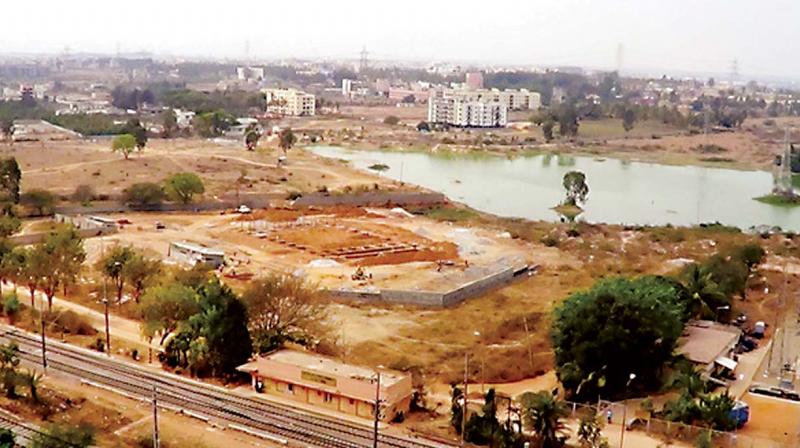The chat room: De-notification of lakes is suicidal'
​The state government has not exactly been kind to the environment as it forges ahead with projects in the name of development.

As citizens battle to save Bengaluru’s dying lakes, on which rampant encroachments wreaked havoc, the state government threw a spanner in the works by denotifying some 1,300 “dead lakes.” Water expert Professor T.V. Ramachandra and Sridhar Pabbisetty, CEO, Namma Bengalufu Foundation, make no bones about their opposition, as they tell Joyeeta Chakravorty about how the ramifications of destroying lakes, from a water crisis to increasing the chance of flash floods.
The state government has not exactly been kind to the environment as it forges ahead with projects in the name of development. Its latest move to denotify some 1,300 “dead” lakes has not been entirely surprising as a result, but it has sparked off protests among the greens, who see it as yet another ruse to take over water bodies and pander to the real estate lobby. Professor TV Ramachandra of the Centre For Ecological Sciences (CES) at the Indian Institute of Science, and Mr Sridhar Pabbisetty, CEO of Namma Bengaluru Foundation are clear the government is not on the right track and make no bones about their objection to its proposal.
"You cannot call an ecosystem dead and calling a lake dead is even more ridiculous. It is only when the water retention of lakes falls that they dry up. But the point to consider is why they dry up. It’s because there is large scale development in their catchment areas," notes prof. Ramachandra.
Mr Pabbisetty interrupts to say regretfully, "The gross failure of the government to protect lakes is now being fixed by lay methods of identification. Instead it should hold officials responsible for protecting the lakes accountable and also those colliding with the land mafia."
Clearly agreeing with his point of view, prof. Ramachandra adds, “This whole de-notification business is suicidal. It is irresponsible and shows the government is hand in glove with the land mafia."
Having done a study with Dr Bharath H Aithal of the CES warning that unplanned growth could make Bengaluru unlivable, he seems anxious the government’s move could help his forecast come true.
“Encroachments of storm water drains (rajakaluves) was always a bad idea. Bengaluru has an undulating topography and water moves from one lake to another. With encroachments we lose the link. This foolish narrowing of lakes and concretisation of storm water drains will prove extremely costly to our future. The concretisation will also increase the chance of floods as the velocity of water will increase," he continues.
"What the government should do is allow ground water recharge," nods Mr. Pabbisetty.
"Every year new spots are being flooded, which means the water flow pattern is being impacted. This happens because the authorities have been messing with the rajakaluves. Public money cannot be allowed to go to waste this way. BBMP engineers and the civic authorities should sit with us and come up with a solution rather than doing something that will heavily impact our future generations," the professor sums up.

